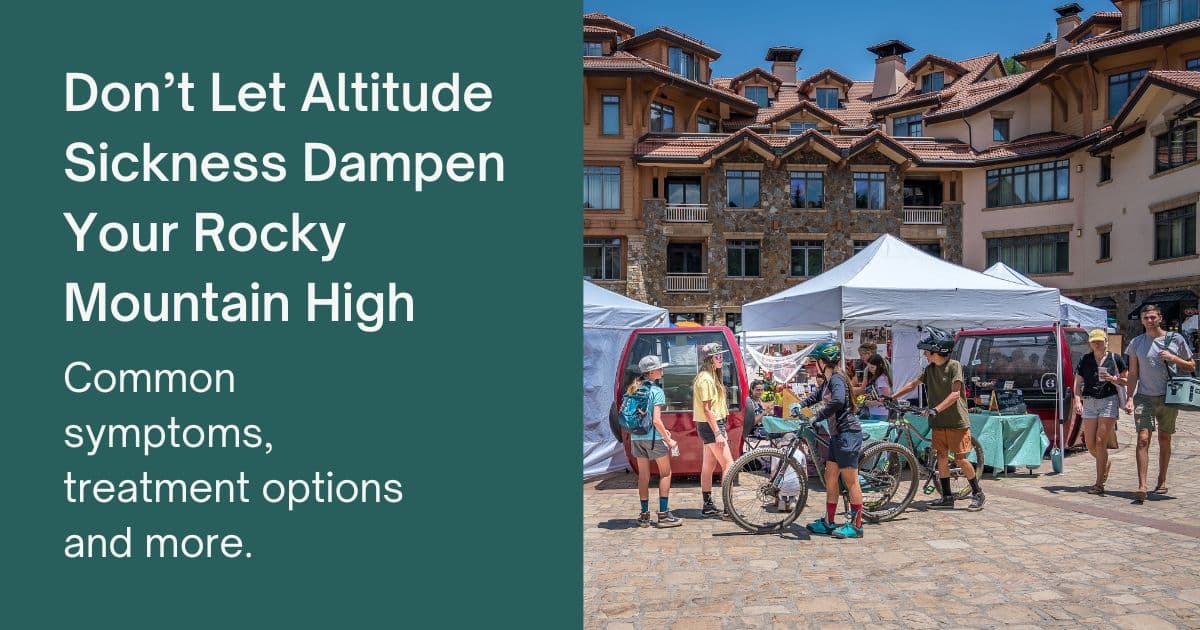Nothing beats summer in the Colorado mountains. Here in Telluride, stunning vistas and world class festivals draw tourists from across the country and around the world. If you’re a local, chances are you’ll be busy entertaining family and friends who can’t wait to pay you a visit. But high altitude illness can put a damper on a summer vacation for visitors who are not acclimated to life at higher elevations.
Altitude sickness commonly begins above 8,000 feet
Often called Acute Mountain Sickness, travelers to Colorado commonly experience high altitude illness at elevations above 8,000 feet. The higher the elevation, the more noticeable the symptoms, and it can be worse for visitors who go directly from sea level to high altitude. Even if you live in the Mile High City, going from Denver to above the tree line (above 11,000 feet) can take some getting used to. In severe cases, visitors can develop a life threatening condition called High Altitude Pulmonary Edema (HAPE), an accumulation of fluid in the lungs. Symptoms include an accelerated heart rate and severe shortness of breath.
What are the symptoms of altitude sickness?
Common symptoms of Acute Mountain Sickness include headaches, nausea, fatigue, loss of appetite, dizziness, vomiting, shortness of breath and difficulty sleeping. People often say it feels like a bad hangover. Some people feel symptoms soon after arrival. In other people, it might take a day before symptoms develop. If you’ve been here for more than 24 hours and feel okay, chances are you will not be affected.
Who is at risk?
Unfortunately, anyone can develop high altitude illness, even if you are young and healthy. It is most common in people coming from low elevation, but if you have a history of heart failure, obesity, sleep apnea, a current respiratory or gastrointestinal infection or a previous case of high altitude sickness your risk may be increased.
How can you relieve altitude sickness?
If you are travelling to Telluride or you have family or friends planning a visit, there are a few ways to reduce your risk. First, make a gradual ascent. If you are visiting Colorado, spend a night or two at a lower elevation like Denver to get acclimated. There is a medication called acetazolamide that you can take in advance to speed up acclimatization. Stay well hydrated and minimize exertion upon arrival. If you are spending your days enjoying the high country, spend your nights at a lower elevation to help you get a good night’s sleep. Minimize consumption of tobacco, alcohol or marijuana. If you start to feel sick, move to a lower elevation. In some cases, supplemental oxygen (particularly while sleeping) can help.
Prepare in advance to address altitude sickness
We hope you will love it here just as much as we do! If you are planning a trip to Telluride this summer, we encourage you to schedule a telehealth visit in advance with a member of our Primary Care team. We can talk with you about any health concerns, provide some helpful tips and get you ready to enjoy the mountains before you leave home. To schedule a telehealth appointment call 970-728-3848.





